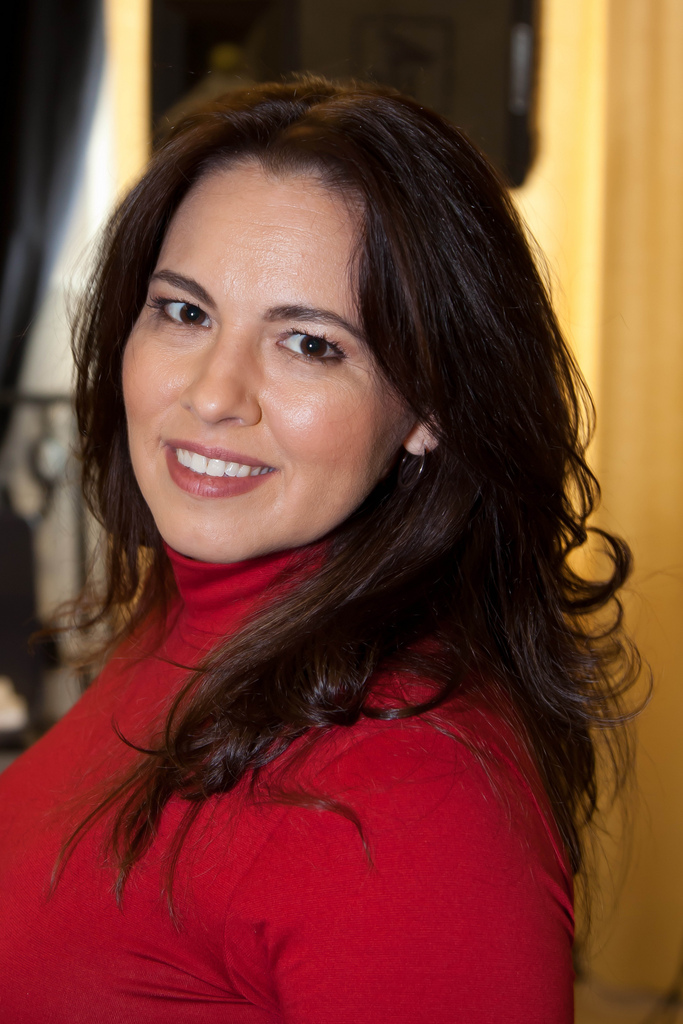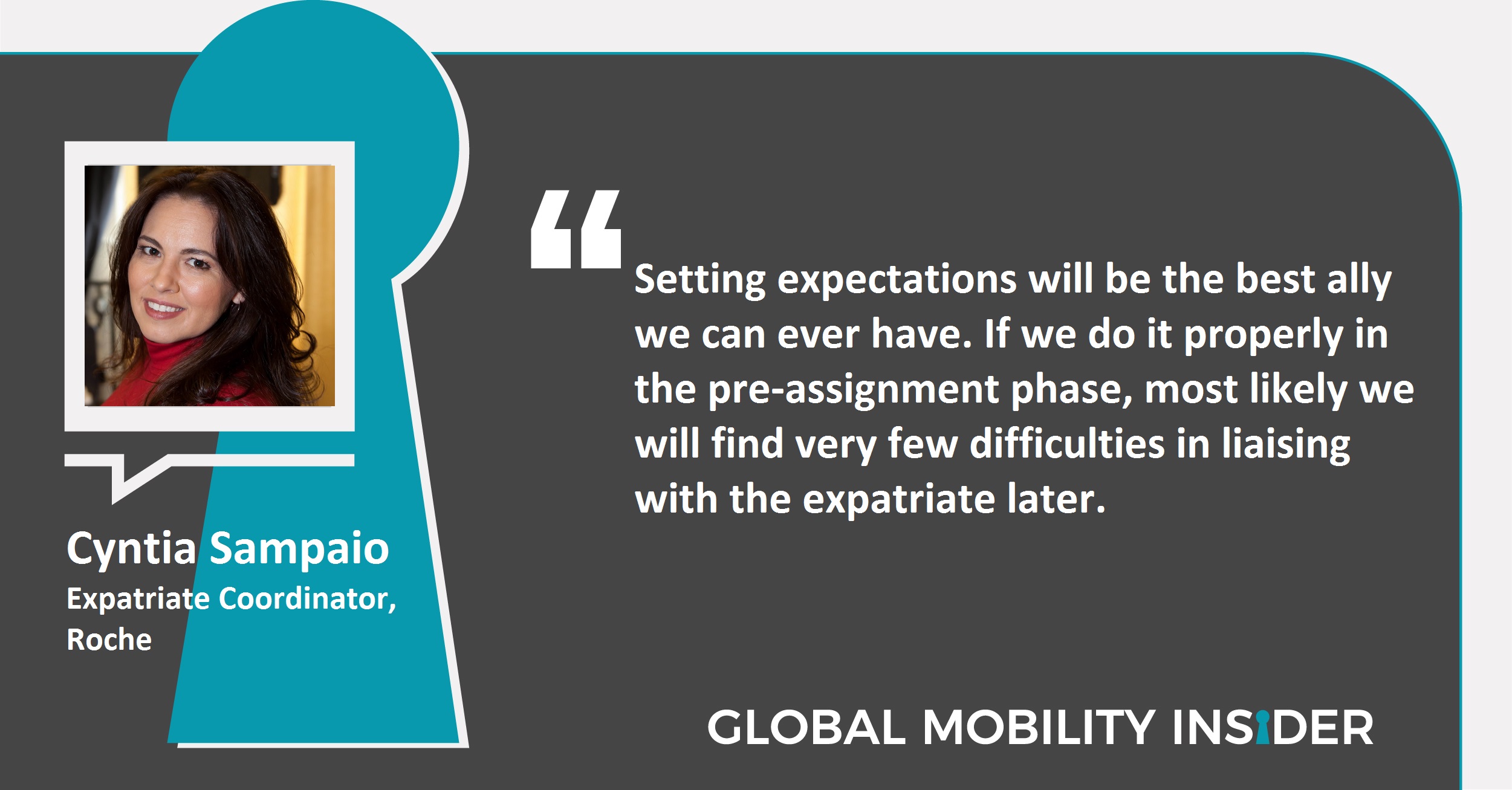Cyntia Korsakas Sampaio – Expatriate Coordinator at Roche
Ms Cyntia Korsakas Sampaio is an Expatriate Coordinator at Roche, a well-known biotechnology and pharmaceutical company. Ms Sampaio has been with Roche for three years and is in charge of liaising with Expatriates of the company, specifically expats for Roche, Brazil.
Ms Sampaio shares her experiences and her strategies on how to manage expat benefits and setting proper expectations for expats in her company. Learn more about liaising with expats and developments and the Global Mobility Industry in her full interview below.

Q: Can you tell us more about your role in Roche?
My role is to Coordinate all international moves touching Brazil and liaise with the Global Mobility Hubs in San Francisco-US and Basel-Swiss.
I also support the HR Brazil and the Management Team helping to identify the best solutions, cost effectiveness, anticipating potential issues before an expatriation/repatriation.
There is a big operational piece such as managing providers, preparing reports, etc. but I also have some strategic activities while working with the Global Team, creating Policies and being involved in discussions about payroll, taxes, costs, budget, etc.
Once I heard that Brazil is not for amateurs and I should say this is quite accurate when we think about all challenges and creativity we need to have to face bureaucracy and old fashioned Law, and my role is all about supporting the Company and the expatriates and make it all as smooth as possible.
Click & Like on LinkedIn
Q: In your experience, what are the most important benefits that expats value?
Definitely, housing is the most important benefit, especially when the assignee has a joining family.
They are looking for the place that will make their families feel home and safe for the next 3-5 years of their lives while they are at work and they want their families to be happy there.
The place has to be as special as the one they left in their Home Country.
COLA is also a valuable one as this will allow the expatriate to equalise the costs and have a similar purchase power in the Host Country.
Q: What is the most difficult part of liaising with expats in your company?
I actually do not think that difficulties will come up due to the Company, but due to expectations met or not and this will be the same anywhere in World.
Setting expectations will be the best ally we can ever have. If we do it properly in the pre-assignment phase, most likely we will find very few difficulties in liaising with the expatriate later.
Of course, when you live in very different Cultures or Country styles all conversations must be very honest, and the expatriate needs to sense that he/she is being listened and understood. And from our side, we need to let them know what they can expect to find in the new Country. This will work from the most intricate subject of our discussion to the simplest one like the type of electric voltage in residential areas.
Q: What kind of developments do you see in the global mobility industry this year?
I see professionals looking for specialisation training and courses, not only those small pills of knowledge that used to be sufficient until not long ago but real, good ones.
Policies will be more flexible and traditional Policies continue to be abandoned and replaced by more modern approached ones. Providers will be demanded to be quicker and deliver a high-quality level of service as competition rises and the HR professionals gain knowledge in their line of work.
From my point of view, this is just global mobility effectively starting to be a real area of specialisation rather than just a support position within HR.
Q: What advice would you give to someone looking to build a career in HR and global mobility?
Most of the professionals start as generalists, and it is a very good start indeed because it will give a broad idea of how HR works, what competencies it requires and will definitely help to identify which area the person would like to specialise.
Also, a good area within HR to start is Compensation as it gives a good and important background in remuneration concepts.
For those that would like to pursue a Global Mobility career, it is also a very good start, and I strongly recommend that if possible build a career where you do not sit in HR only. To have a deeper knowledge in tax, immigration, relocation and shipping will be nothing but beneficial so if you can move around some of those areas, it will definitely add a lot of knowledge to the basket.
And please, please live your values and go Global, there is nothing like living and working abroad to teach you the real deal.


Leave a Comment
* Fields marked with this asterisk are mandatory.